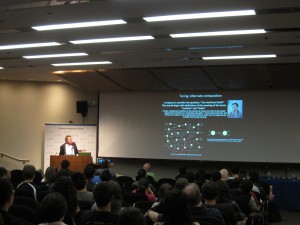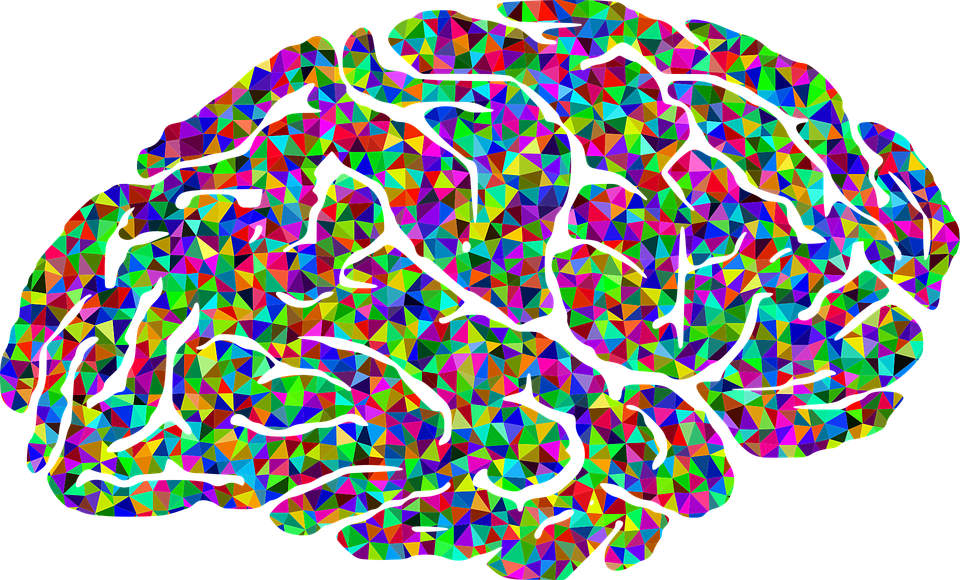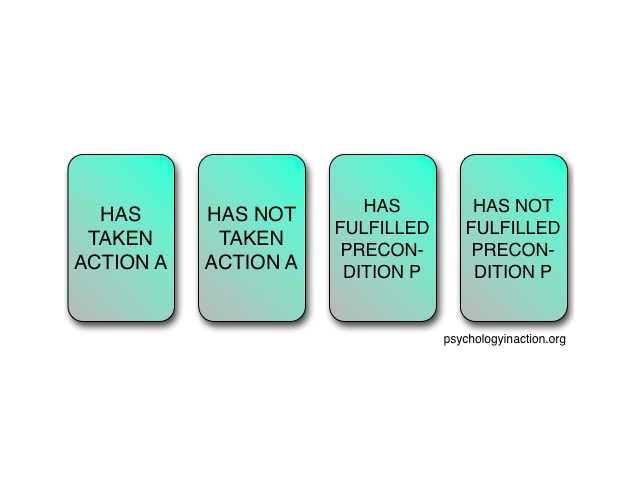-
Highlights of “Building Minds”

For those who missed “Building Minds: Microchips & Molecules”, here is a taste of the action. For all who packed the CNSI auditorium in May for our annual interdisciplinary symposium, here is a quick trip down memory lane. Enjoy! Gimzewski (’15 symposium) UCLA’s James Gimzewski cited Alan Turing in his talk describing his research on…
-
Signal Detection: Decision Making in Uncertainty

We all experience uncertainty: How did I do on that test? What do they think of me? Where did I leave my keys? Is my phone ringing? In these and other uncertain situations, we have to take the evidence we have and make our best guess about the answer. Sometimes we’re right, and sometimes we’re…
-
How to Take Good Notes: Go Low-Tech

More and more students are opting to take notes on laptops to save trees and – they assume – take better notes. But is this assumption correct? According to the findings UCLA’s Dr. Danny Oppenheimer recently published in Psychological Science , these students are wrong: in a study of note-taking comparing handwritten to typed notes, Meuller…
-
How do we see so many colors on a digital screen?

How can we possibly perceive a world of colors from just red, green, and blue, the colors of lights in TV, computer, and phone screens? The answer has to do with the way our visual system is set up: We have three different kinds of cones in the retina which respond most to what we…
-
Serial: the Case of Memory

Serial has quickly become an international obsession. From the master storytellers of This American Life, the focal story of the inaugural season is about details surrounding the 1999 conviction of then high-school student Adnan Syed for the murder of ex-girlfriend Hae Min Lee. A new episode is released every Thursday (this week will be the…
-
Memory in the Mountains: How Cognitive Psychology Can Improve Rock Climbing

“You can never climb the same mountain twice, not even in memory. Memory rebuilds the mountain, changes the weather, retells the jokes, remakes all the moves.” – Lito Tejada-Flores, Extreme Skiier, Climber and Author As Lito Tejada-Flores alludes, rock climbing and mountaineering depend as much on human memory as the physical environment in which…
-
What is color (in vision)?

Roses are red, Violets are blue, And you probably think That the sky is blue too. Color, however, exists only in the mind: Color is our experience that maps onto the physical luminance properties of visible light and visible-light reflectance properties of objects. Psychologists call this color perception, to recognize that color is more a property…
-
There is a green% chance you will read this post.
Recently The Onion posted this tongue-in-cheek article regarding synesthesia. For those of you who may not know, synesthesia is a neurological phenomenon in which people experience cross-sensory perceptions. Fellow PIA blogger Emma Geller has written a fabulous primer to the world of synesthesia, located here, but the quick-and-dirty version is that synesthetes have associations between senses…
-
Graduate Program Interviews: Cognitive Psychology

So you applied to PhD programs in Psychology in the fall, with some kind of interest or focus in cognitive psychology – memory, attention, perception, thinking, learning, cognitive neuroscience, computational modeling of cognition, etc. Now interviews are coming up. Want to get the inside scoop on the interviewing/decision process? What questions to ask, what to…
